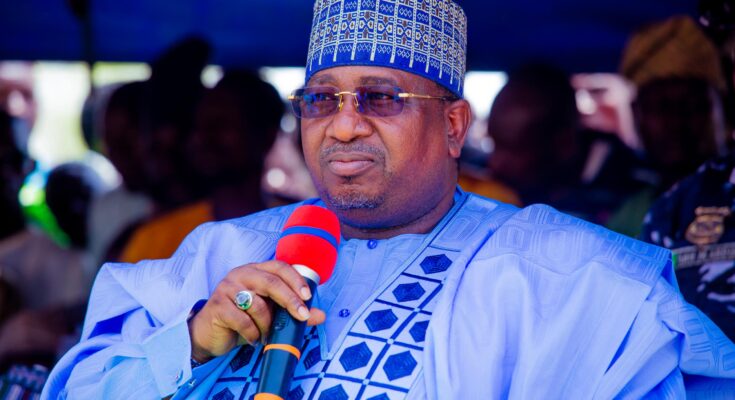In a political landscape where promises often remain ink on paper, Kebbi state under the focused leadership of Governor Nasir Idris is rewriting the narrative of governance. In less than two years at the helm, Governor Idris has quietly but steadily laid down a roadmap for meaningful development that speaks directly to the needs of the people. From education to healthcare, civil service infrastructure to staff welfare, the governor is demonstrating that development doesn’t have to be loud to be positively impactful.
Let’s begin with the foundation of every prosperous society—education. In just under two years, the Kebbi state government has completed the renovation and furnishing of an impressive 1,816 primary and secondary schools across the state. These are not merely touch-and-go projects. They reflect a deliberate investment in the learning environment for thousands of children.
The state government didn’t stop there. It has also constructed and fully furnished 343 new primary and secondary schools, increasing access to education especially in underserved areas. The governor recently revealed that 304 more schools are under various stages of construction.
For the people of Kebbi, these are not just statistics. They are daily realities. They mean children no longer have to learn under trees or in dilapidated buildings. They mean teachers can teach with pride and an efficacy, which had been long forgotten in the state, is returning with speed. And perhaps most importantly, they mean communities have renewed confidence in a system that was hitherto abandoned.
Governor Idris’ policy of free education has further positioned the state as one of the few in the country actively removing economic barriers to learning. In a country where access to education is often defined by financial ability or hollow free education policies, Kebbi’s commitment to free education is a different, bold, and people-centered move that ensures no child is left behind.
But education alone is not enough if citizens are not healthy. That’s why the health sector in Kebbi is receiving equal attention. Recognising the challenges facing the state’s healthcare delivery, the Nasir administration embarked on a state-wide renovation of general hospitals. This timely move is aimed at decentralising quality healthcare, reducing overdependence on facilities in the state capital, and ensuring that citizens in rural areas also receive proper medical attention.
The decision to renovate hospitals stems from a painful but honest truth—the sight of patients lying on bare floors due to overcrowding. Rather than ignore or deny it, the comrade governor is confronting it head-on. Today, work is ongoing across general hospitals to improve bed spaces, expand wards, and equip facilities with the needed tools for effective service delivery.
Further on healthcare delivery, the state has employed new doctors and harmonised their salary structure to ensure they earn on par with their counterparts in federal medical centres. For years, one of the key reasons state-owned facilities lost skilled hands was salary disparity. That gap has now been closed. The administration also employed more nurses to support the growing demand for healthcare services.
Staff welfare, always a neglected conversation in governance, is another area where the Idris administration has walked its talk. Kebbi is one of the few states in Nigeria that has fully implemented the new minimum wage across all cadres, including teachers. Beyond implementation, the state is up to date with salary payments. No worker is owed. No pensioner is begging. Gratuities and death benefits are also being settled promptly. This is not just governance; this is empathy institutionalised.
To further ease bureaucratic processes and reduce the cost of governance, the state government has completed the construction of a modern state secretariat designed to house about 2,400 civil servants. This structure is more than just a building—it’s a statement. A statement that says Kebbi civil servants deserve a conducive, dignified workspace that inspires productivity and morale.
In the midst of all these, it is crucial to emphasise that these achievements are not being executed with pomp and ceremony. Rather, they reflect Governor Idris’ deep belief in silent service delivery—letting the work speak for itself. That said, it is also important that the people are kept abreast of what is being done in their name, with their resources.
The overarching narrative here is one of responsible leadership, deliberate investment, and a human-centered approach to governance. In education, children now learn in safer, cleaner, and well-equipped schools. In health, patients are beginning to experience dignity in treatment and access to professionals who are motivated and fairly compensated. Workers, who form the engine room of government, are not just paid on time but are also given a functional environment to deliver.
So, when the story of this administration is told, it should be one that balances promise with fulfilment. Kebbi is not perfect. No state is. But to deny that progress is being made is to wilfully ignore the facts. Governor Idris has raised the bar on what it means to govern with vision and integrity.
It is our collective responsibility as citizens, to ensure that the conversation around governance in Kebbi is deep, honest, and informed. Like me, let the people of Kebbi for whom Governor Idris is working tirelessly applaud where progress is real, and when they want to challenge, let it be where gaps exist. That is the only way to build a state where government and the governed move in the same direction as their hardworking governor.
In Kebbi, that direction is clearer than ever: forward. And it can only stay that way so long as the people continue to stand with a governor fully investing in the wellbeing of the masses who so freely trusted him with their votes.

